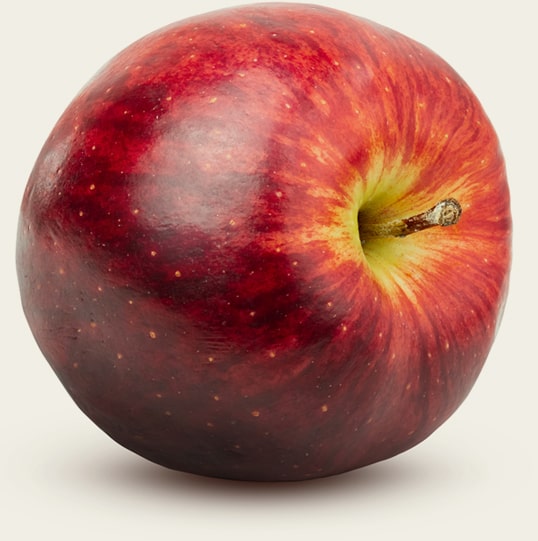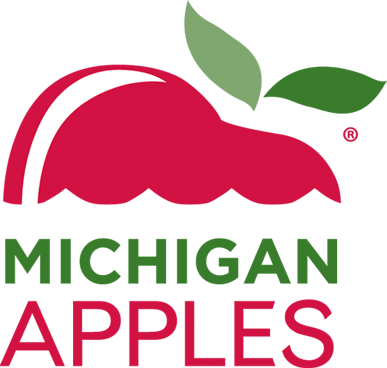Michigan Apple Industry Information
The apples consumers want!
Consumers prefer Michigan Apples! Consumer research shows that shoppers believe Michigan apples are fresher and taste better than the same varieties grown elsewhere. In consumer panels held in Michigan, Chicago, Atlanta and Houston from 2008 to 2017, Michigan Honeycrisp, Fuji and Jonagold were consistently ranked highest.
Focus group participants indicated they preferred to select individual apples based on size and appearance but they also liked the convenience and pricing of bagged apples. Michigan apples are packed in trays, poly and mesh, to meet consumer demand.
Consumers who were tested say this about Michigan apples:
*Consumer research was conducted by an independent researcher and funded by Michigan Apple Committee.

“Good size and color”
“Freshest”
“Sweet and tart balanced”
“Crunchy, juicy. Love it.”
“Very crisp, very sweet”
“Juicy, crunchy, sweet, crisp”
“Great flavor, very juicy, great texture”
“Good fragrance; great flavor”
“Sweet and tart and crisp”
“Floral smell and sweet taste”
Committed to Social Responsibility, Food Safety, and a Healthy Environment
For more than a century, Michigan has been home to orchards that produce flavorful, high-quality apples in many varieties. Michigan apple growers take great pride in being stewards of the land, and preserving a healthy environment for future generations. Today, there are 775 apple growers in Michigan, with some farms in their fifth and sixth generations! The tradition of apple growing in Michigan also means a commitment to community and social responsibility, as well as providing a fresh, quality, safe product for consumers to enjoy.
- Each year, Michigan Apple growers donate more than one million pounds of apples to hungry families through the Michigan Food Bank Council.
- Approximately 40 percent of Michigan’s apple growers are GAP (Good Agricultural Practices) certified – the on-farm certification from the United States Department of Agriculture (USDA).
- Nearly all large Michigan apple shippers are USDA-GHP (Good Handling Practices) certified.
- The GAP and GHP audits by the USDA focus on best agricultural practices to verify that fruits and vegetables are produced, packed, handled, and stored in the safest manner possible to minimize risks of microbial food safety hazards.
- In addition to USDA audits, shippers, packers and growers also participate in third-party audits to ensure their practices are as safe as possible for apple consumers.
- As a part of these safety practices, growers can also provide full trace-back of the apples they pack and distribute, meaning consumers can trace the apple on their table back to the block of trees on the orchard where it was grown.
- Audits and practices require a significant financial, time and workload commitment by the growers, packers and shippers who are dedicated to providing a safe, high-quality product to retailers and consumers.
- Michigan’s apple cider industry sets quality standards by staying ahead of food safety laws and maintaining extensive training to keep consumers safe.
- Because Michigan is located within 500 miles of half the U.S. population, Michigan apples have a smaller carbon footprint.
- Michigan integrates natural methods and some organic practices to control pests and disease.
- At all points along the supply chain, recyclable packaging and shipping materials are used, tree trimmings are composted, and across the industry, environmentally friendly lighting and cooling methods are used.
- Michigan’s apple growers have adopted no-till practices to reduce erosion.
- There are 14.6 million apple trees in commercial production in Michigan, capturing carbon dioxide and producing oxygen.
- Michigan apple growers keep a total of 34,500 acres of land in agriculture and are dedicated to sustaining the clean water and fertile soil that makes Michigan apples the most flavorful apples you can buy.
